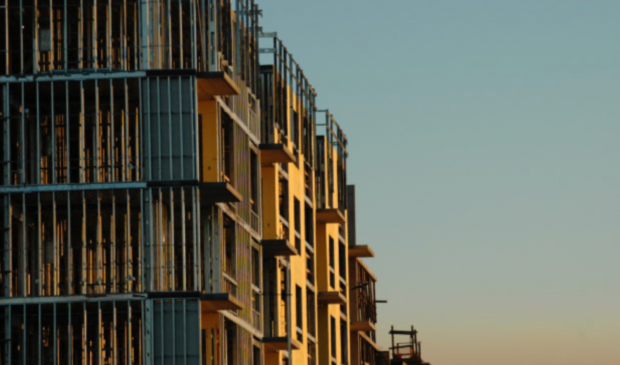Housing and Planning Department maps out next steps following compatibility reform vote
Friday, June 16, 2023 by
Kali Bramble Following City Council’s move last week to recalibrate compatibility requirements, city staff joined the Housing and Planning Committee on Tuesday for an update on what’s next.
Currently, Austin’s compatibility standards affect development up to 540 feet from lots zoned as Urban Family Residence (SF-5) or lower, a distance far beyond the nationwide average. Proponents say the resolution, which directs staff to consider compatibility limits of 100 feet and a scaling back of its strictest exclusions, is a critical first step in addressing the city’s worsening housing crisis.
“It’s not a coincidence that there’s been virtually no ‘missing middle’ housing built in the last 20 years in this city,” said real estate developer Kimbrough Gray, who joined to share how setback regulations had quashed his plans for a multi-unit housing project. “Compatibility has done a very effective job at destroying it.”
The Housing and Planning Department has been exploring the city’s compatibility standards since December, when Council passed a resolution allowing relaxed compatibility and height bonuses on select corridors and future Project Connect rail lines. In the months since its passage, however, staff reports that there have been no applications for the program.
Council Member Chito Vela, who led the charge on last week’s resolution, said this failure proves the need for a more ambitious approach.
“When I speak to both nonprofit and market-rate developers, everybody identifies compatibility rules as our No. 1 barrier to housing,” Vela said before the July 8 vote. “We’ll take a 300-unit project, but because of compatibility rules, it becomes a 220-unit project, and a 100-unit project becomes a 60-unit project, and we just kind of chip away at those individual units. … This measure just aims to bring us in line with peer cities.”
Per Council direction, staffers currently are at work analyzing the city’s existing compatibility footprint, a task that involves running models to estimate units lost at varying setbacks. Staffers also are conducting a survey of all those who have applied for density bonus programs, multifamily site plans and multifamily building permits within the last five years.
“With this information, we’ll analyze how the changes to the distance of compatibility might affect the Austin Strategic Housing Blueprint and equity goals, such as housing supply near existing and planned transit, displacement risk areas, high-amenity areas and our density bonus programs,” said Rachel Tepper, principal planner for Housing and Planning.
Vela’s resolution also asks staff to revisit definitions of triggering properties, which currently include lots zoned single family even if they sit vacant or are used for nonresidential purposes, like parks or schools. Compatibility exemptions also are on the table for townhomes or other missing middle housing projects under 16 units and 40 feet.
The resolution comes amid an influx of code amendment proposals aimed at targeting Austin’s housing shortage, including updates to subdivision rules, streamlined site plan requirements, accessory dwelling unit regulations and reduced occupancy limits. Last week also saw the passage of Opportunity Unlocked, a program sponsored by Council Member Ryan Alter that would allow for multifamily projects on lots zoned single family, so long as they meet certain affordability stipulations.
Housing and Planning staff will return to Council with their findings on compatibility sometime next month.
Photo made available through a Creative Commons license.
The Austin Monitor’s work is made possible by donations from the community. Though our reporting covers donors from time to time, we are careful to keep business and editorial efforts separate while maintaining transparency. A complete list of donors is available here, and our code of ethics is explained here.
You're a community leader
And we’re honored you look to us for serious, in-depth news. You know a strong community needs local and dedicated watchdog reporting. We’re here for you and that won’t change. Now will you take the powerful next step and support our nonprofit news organization?






